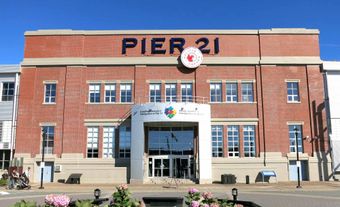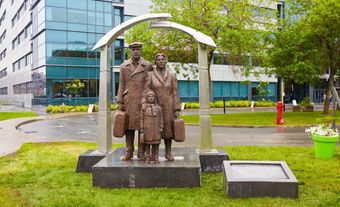The Republic of Albania is a small nation in southeastern Europe on the west coast of the Balkan peninsula. Albanians from Albania are divided into two main dialect groups: the Ghegs from the northern half of the country and the Tosks from the southern half. The 2016 Canadian census reported 36, 185 people of Albanian origin (28, 425 single and 7755 multiple responses).
Migration and Settlement
The first Albanians arrived in Canada at the beginning of the 20th century, following internal revolutionary upheavals. Few immigrated to Canada after the Second World War (WWII). Most of the post-war Albanian immigrants settled in either Montreal (Quebec) or Toronto (Ontario). Some found jobs in Calgary (Alberta) and a few in small communities in Ontario (Peterborough, for example).
After the inter-ethnic conflict in the former Yugoslavia between ethnic Albanians and Serbian military and police forces, many Albanians left Kosovo as refugees. Some came to Canada. In 1999 the Canadian government created a program to offer safe haven to 7000 Albanian Kosovar refugees.
Canadian Albanians have their roots in Albania, although the country of their birth could be Yugoslavia, Greece or Albania. Additionally, there are ethnic Albanians in Yugoslavia - Shqipetare (Sons of the Eagle) - and Albanians who live in Greece. As a result, many 2nd and 3rd generation Canadians of Albanian origin may not specifically name their ethnic background, and census figures may not accurately represent their actual number.
Social and Cultural Life
Albanians have rich folkloric traditions, especially music, dance and traditional clothing. Albanian socio-cultural activities and festivals tend to represent local communities and groups of families. Albanians often live in extended family households. In the 2016 census, 28, 725 Canadians reported Albanian as their mother tongue language (first language learned).

 Share on Facebook
Share on Facebook Share on X
Share on X Share by Email
Share by Email Share on Google Classroom
Share on Google Classroom


